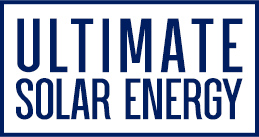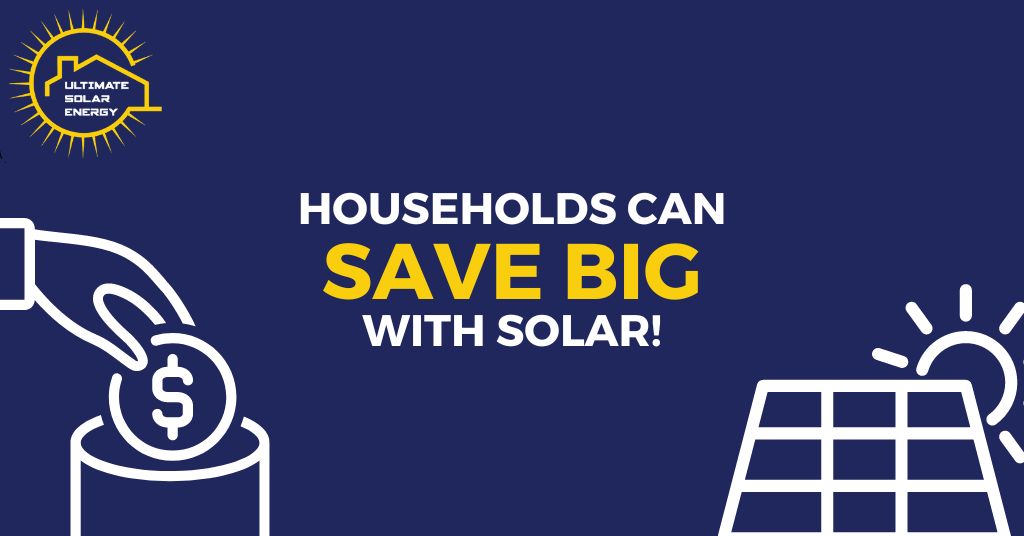Households Can Save Big with Solar!
Energy costs are on the rise and appear poised to continue increasing in the foreseeable future. In this situation, is solar power a worthwhile investment? Indeed, not only is solar power worth considering — but it has evolved into a logical choice for numerous Australian households. Here’s why:
A solar power system can produce solar energy at approximately 5-6 cents per kWh. Contrast that with the present grid power bill, and the rationale behind the installation of solar panels on over 3 million homes becomes evident.
The cost of solar panels has hit a historic low, with a standard 10kW solar system equipped with high-quality solar panels now available for as little as $8000-$9000, covering the full installation. This system produces an average of 40 kWh of solar energy per day throughout the year.

How Much is Solar Saving Households in Australia: Assessing the Value of Solar Panels
As electricity costs surge throughout Australia, an increasing number of households are turning to solar power as a cost-saving measure for their electricity expenses. This trend is bolstered by the fact that solar panel prices in the country have dropped to remarkable lows.
The affordability of high-quality solar panels makes it feasible to achieve significant big savings annually on electricity bills. Homeowners can expect to recover their investment in a residential solar system within 3-5 years. To better understand these financial benefits, let’s understand the specifics of how much a solar power system costs and the savings it offers. This analysis will aid in determining whether solar power is a suitable choice for your home.
Solar Energy Cost Efficiency
Household solar panels prove to be a worthwhile investment. Solar energy is directly utilized in homes as it is generated, reducing the need to purchase electricity from the grid.
Unused solar energy is redirected back to the grid, for which energy providers offer a modest reimbursement. It appears as a credit on your electricity bill, usually between $10 and $30 per quarter. A smaller credit is indicative of more efficient in-home use of solar energy.
To calculate daytime power consumption, check meter readings in the morning and again in the evening. The difference between these two readings will indicate the amount of power consumed during the day when your solar system is active.
Solar batteries offer excellent storage, and empower homeowners to further reduce electricity bills and rely predominantly on solar power. These batteries store energy that would otherwise fed back to the grid, allowing its use during the evening.
Does Solar Power Save You Money?
The return on investment for a solar panel system has become remarkably favorable, enabling many individuals to witness a good quality system paying for itself in as little as 3 or 4 years.
Not too long ago, it took 7 years or more for solar systems to reach the break-even point. For those aiming to maximize savings, it now makes sense to install a larger solar array. This ensures more solar power availability during the summer, allowing households to use appliances like air conditioners more frequently. Some may also consider this with the anticipation of adding battery storage shortly.
As a general guideline, a solar power system can save you up to approximately $400 per year for each kilowatt of installed capacity.
Choosing the Right Solar Panels Made Simple
When you are picking solar panels, think about how much you can save. For instance, a system that’s 8kW might save you around $3,400 every year. This can help you decide: Do you want mid-range panels that pay for themselves in about 3 years or top-notch panels that take around 5 years to pay off?
High-quality solar panels usually have a 25-year warranty and can last about 7 years longer than cheaper ones, like some made in China. Their longer life and better performance can make them worth the higher price at the start. Your choice depends on two things: how long you plan to live in your house and how much you can spend on solar panels.
Evaluating the Cost of Solar Power Systems
When budgeting for a solar power system, be cautious with low-priced options. A $4000 system may lead to issues like underperforming panels, unreliable manufacturers, and unresponsive installers. Many households have faced problems with such cheap systems. Remember, a quality 5kW system usually costs around $6000; a significantly cheaper price often means a compromise in quality. It’s important to understand the trade-offs at different price points in the solar market before making a decision.
Wrap Up
The key takeaway is clear: if you can afford a high-quality solar system from a trusted installer, it’s a worthwhile investment. With the right sizing, you could see a return on your investment in just 3 to 5 years. Plus, you’ll enjoy a hassle-free source of clean energy for many years, often over 25 years with top-tier solar panel brands like QCells and REC.
At Ultimate Solar Energy, we make your decision-making process so simple. We design customized solutions based on your requirements, using only the most premium products.
Get a Free Quote now!

